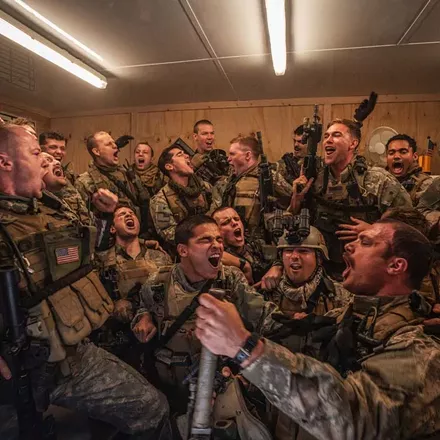Unless you have a severe fear of flying, you’ve probably seen an airplane crash movie or two. Flight will absolutely give you the high-flying willies, but will also keep you engrossed in what turns into a terrific character study of a man who is spinning out of control, but who believes he can just carry on as if he’s leading a life of normalcy.
Played by Denzel Washington, who in recent years has delivered good-but-not-great performances (his last really strong one was American Gangster in 2007), veteran captain Whip Whitaker is introduced as someone with a whole lot of warts.
He groggily awakens from a wild night with a beautiful young woman, he reaches over to finish his hours-old beer, lights up a cigarette, snorts a couple of lines of coke, then reports to work, having gotten himself together.
This is not the kind of guy you want in charge at 35,000 feet. Especially not when he’s up against some “severe turbulence.” Definitely not when his plane loses vertical control.
The plane crash sequence, which only takes up about eight minutes of screen time, but feels like a never-ending nightmare, is terrifying. Yet it’s not until the plane is down, with most of its passengers and crew alive, that the story really begins. Sure, the visual effects are amazing, but when the film turns into a study of Whip and his demons and the people trying to help him and the forces working against him, you’re likely to forget about the action that came before, and become completely absorbed in the drama of it all.
Washington plays the part in a range that goes from cocky to carefree to troubled to shattered to sloppy drunk, and not necessarily in that order. He’s also got some great company: his caring pal Charlie (Bruce Greenwood); a lawyer (Don Cheadle) who insists he’ll get him off scot-free when talk turns from mechanical failure to possible negligence; Nicole (Kelly Reilly), a heroin-addled hooker; and John Goodman as Harling, a “drug doctor” who lives his life to a Rolling Stones soundtrack. Yet the screen is stolen away by James Badge Dale as an unnamed cancer patient in a brief hospital stairwell sequence with Washington and Reilly.
The film is about addiction as much as it’s about redemption. When it’s over, you’ll realize that you had no idea where it was heading, and there’ll be plenty to discuss about the possible meanings of its messages.



















